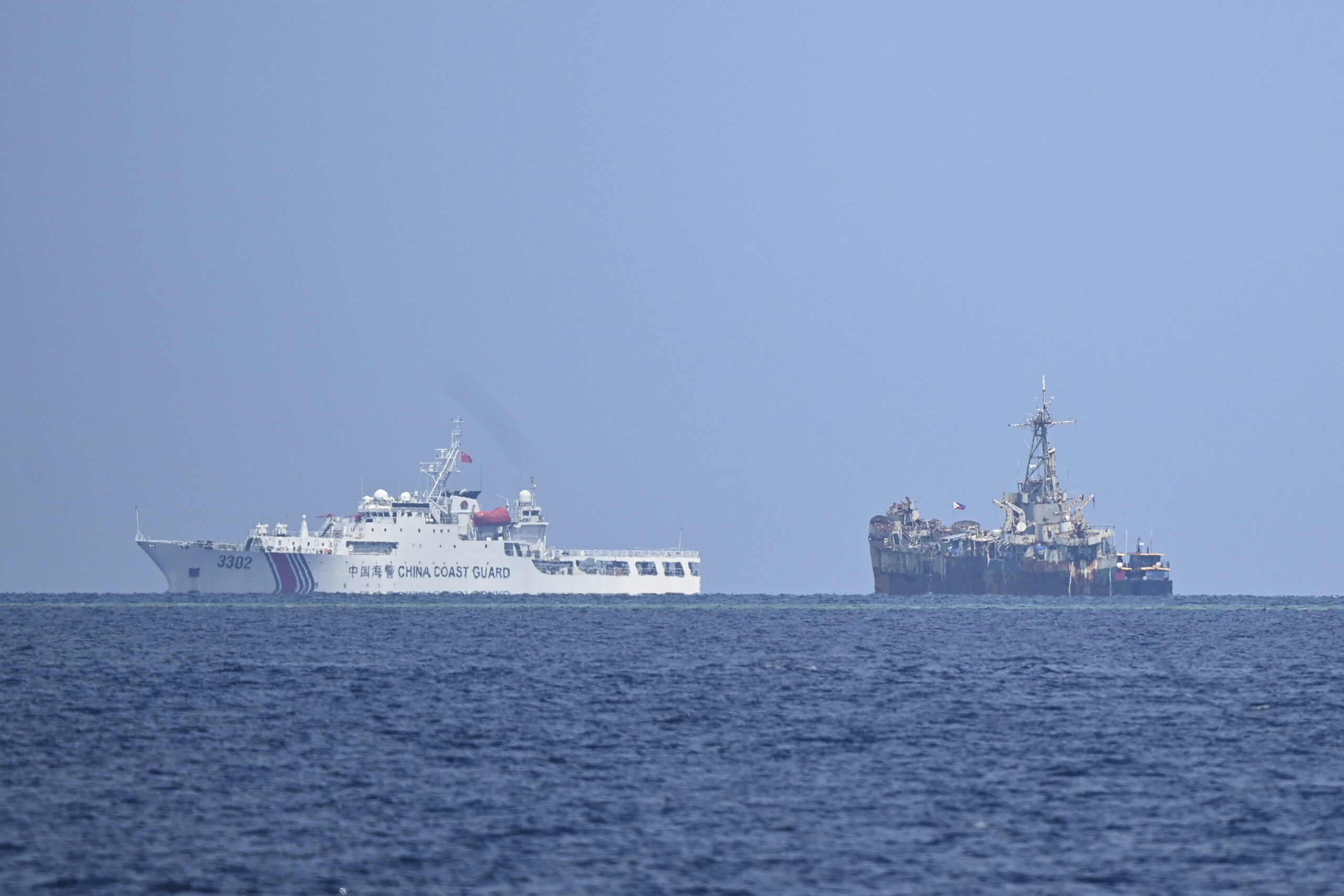
This photo taken on August 22, 2023 shows a Chinese coast guard ship (L) sailing past the grounded Philippine navy ship BRP Sierra Madre where marines are stationed to assert Manila’s territorial claims in the disputed South China Sea. AFP FILE PHOTO
MANILA, Philippines — The Chinese Embassy in the Philippines on Tuesday blamed the United States (US) anew for allegedly “provoking” the recent tense situation in the South China Sea.
In a statement posted on X (formerly Twitter), an unnamed spokesperson of the Chinese Embassy said that Beijing is not responsible for the recent situation in the disputed waters, which the Philippines calls the West Philippine Sea.
Instead, the spokesperson said, it is the US which has been stirring up the situation in the region.
READ: PH wins arbitration case over South China Sea
“Under its pretext of safeguarding freedom of navigation, the US is actually seeking freedom of rampage of its warships in the region. By going out of their way and far to the doorsteps of China to bluff and stir up the situation, the US warships and military aircrafts are demonstrating the true hegemon(y),” the statement read.
“It is exactly the US and not anyone else that’s threatening peace and stability in the South China Sea,” it added.
The spokesperson’s statement was in response to US Secretary of State Antony Blinken’s assertion on Tuesday that the US and the Philippines share concerns about Beijing’s actions in the disputed waters, which violate international law and Filipino rights.
Blinken was referring to the collisions between Chinese and Filipino vessels and the use of water cannons by the Chinese Coast Guard on Filipino ships.
READ: Blinken assures PH of US ‘ironclad defense commitments’
During a joint press conference with Foreign Affairs Secretary Enrique Manalo, Blinken emphasized the US’s “ironclad” defense commitment to the Philippines amid rising tensions in the South China Sea.
The Philippines currently has three defense treaties with the US, including the Mutual Defense Treaty (MDT), which stipulates that the US would act if an armed attack occurred “in the Pacific area on either of the Parties.”
“We firmly oppose the groundless accusations made by Secretary Blinken about China’s legitimate and lawful actions in the South China Sea and his thinly veiled threat to invoke the so-called MDT obligations,” the Chinese Embassy in the Philippines added.
The spokesperson then urged the US not to “instigate trouble” in the South China Sea or take sides in the issue.
“The US is not a party to the South China Sea issue and has no right to interfere in the maritime issues between China and the Philippines. The recent tension in the South China Sea would not have occurred without the US egging on the Philippines,” it further said.
READ: Blinken looks forward to US, Japan, PH trilateral summit in April
China has long since claimed that it had historical rights over the waters and islands in the South China Sea — some of which falls within the Philippines’ exclusive economic zone.
China’s sweeping claims have been invalidated by the 2016 Arbitral Award and the United Nations Convention on the Law of the Seas, which Beijing continues to refute.
Meanwhile, the Philippines, US, and Japan are set to hold a trilateral summit at the White House on April 11 where the countries’ leaders are set to discuss matters on the Indo-Pacific including economic cooperation and security.


